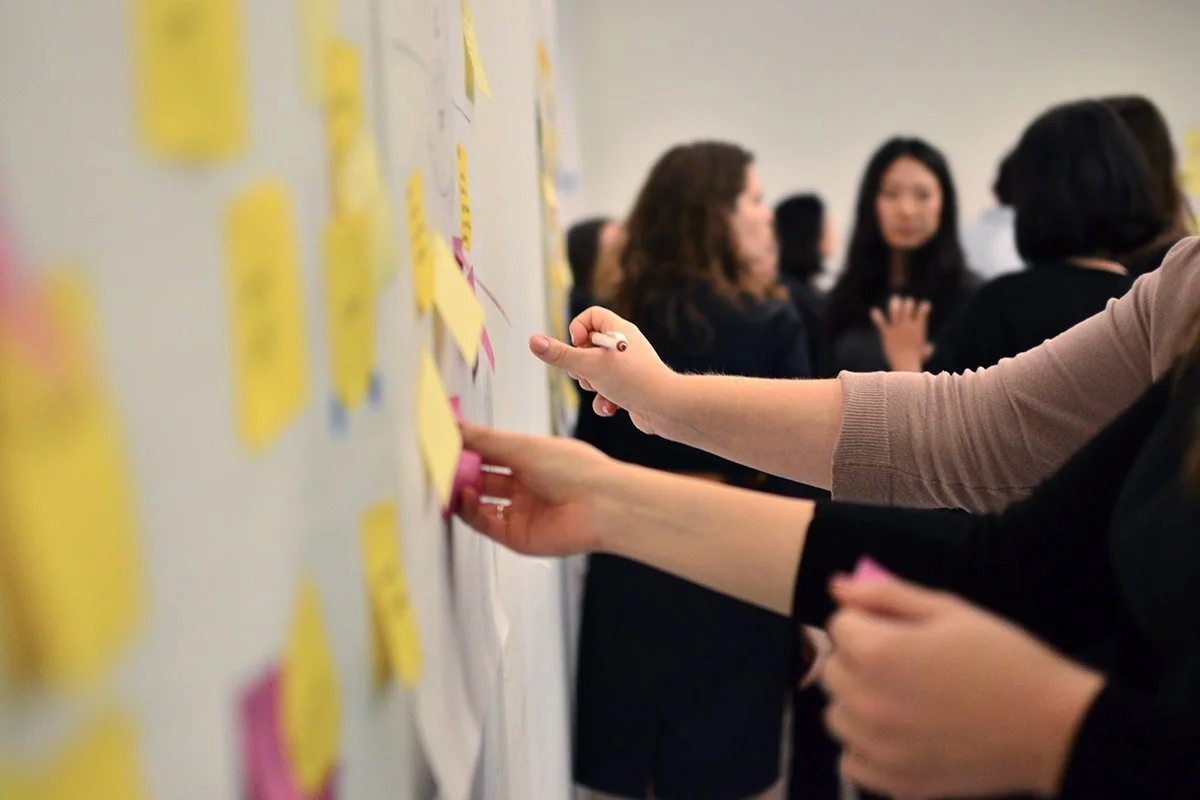Why is debriefing essential?
It’s the end of the day. It’s been a long fruitful day of conversation and engagement. You survey the area, double checking to make sure everything has been brought in and packed away. The crowds have dwindled and it is now just you and your staff. You take a deep breath, and admit it; the rumbling in your stomach persistently draws your attention back to what is for dinner tonight.
Wouldn’t it be tempting to call it a day and go home?
Not so fast. The day is not complete without a collective debrief. You might wonder if this last 15 or 20 minutes of debriefing is really worth the time and effort. After all, you were all there weren’t you? You all know how the day went? Well maybe, but maybe not. Before you dismiss the importance of debriefing, consider the following advantages:
1. Time to reflect
We live in a busy society, with more distraction and stimulation that ever before. Time to reflect and do nothing but sit and think is a rarity; in fact, some may say a superfluous luxury. However, wasn’t it the famous philosopher, Socrates , who said that the unexamined life is not worth living?
Okay, so that might be a bit extreme, but at a fundamental level, Socrates was right. Time spent unexamined is time that has not reached its full potential. Unexamined work is work that has not realised its highest standards. Dedicated time to reflect helps us and our staff to consolidate experiences as well as gauge new ideas, perspectives and learnings.
2. We all hear and interpret information differently
You may believe that we live in one world, with one set of rules and one reality. In a concrete sense this may be true, however context and nuance tell us otherwise.
Consider this sentence:
“She said that she did not take his money”
Straight forward, right? However, what if the emphasis was changed?
What if: “She said that she did not take his money”. Does this mean that someone else said it?
“She said that she did not take his money”. Does this mean that someone else took it?
“She said that she did not take his money”. Does this mean that she took someone else’s money?
The examples could go on. The point is that depending on knowledge, context, gender, age, race, culture, sexuality, socio-economic status, and time of day – the list goes on – people hear information differently. If we are to truly engage in conversation that is curious, inclusive and open-minded, we must make space for differing viewpoints. This means collaborating at the end of the day in a way that is effective, respectful and allows for new perspectives and understandings.
3. Gain immediate feedback
You’ve designed your engagement project. You’ve thought about every last detail, from the venue and signage down to the questions you’ll ask and what you’ll wear. But how do you really know that what you’re doing is working? More importantly; how do you know that what you’re doing is working as well as it could?
Debriefing with staff at the end of the day allows time to gain immediate feedback, whilst it is fresh in everyone’s minds. Drawing on point 2, we all see and hear things differently, and this is great news! Your staff are a wealth of knowledge, coming from all fields of expertise, knowledge and experience. Use them! Discuss what is working, what is not and what can be improved.
4. Understand what is working well and what can be modified
You have gained immediate feedback and now you are ready to modify and tailor your approach for next time. Using your staff to gain different perspectives and brainstorm new ideas not only makes room for improvement in your project, but also allows your team to come together and work towards a common goal. Two heads really are better than one in this instance!
Being open to modifying your approach will help you to ensure that you remain relevant, dynamic and progressive in your field.
5. Value your staff
Have you ever wondered what interesting conversations your staff have had that you’re unaware of? Did they completely understand their role? Did they engage as well as they could have? Did they have any concerns or problems?
Your end of the day debrief is a perfect time to sit with your staff and answer these questions. Giving your staff this platform will encourage your staff to speak up, feel heard and feel part of the team; increasing morale and collaboration. This will work to ensure that everyone is on the same page and that the whole really is just a sum of its parts.
Taking time at the end of the day to debrief allows you the time to reflect, share ideas, improve your approach and bring your team together as a valued and united front. Next time your stomach is rumbling and it’s tempting to get an early night, remember these five important points. Lastly, factor a debriefing session in to the end of the day, so as it simply becomes habit.
Need help structuring your debrief?
Use Conversation Caravan’s Engagement Activity Evaluation Template to help capture your team’s thoughts.


